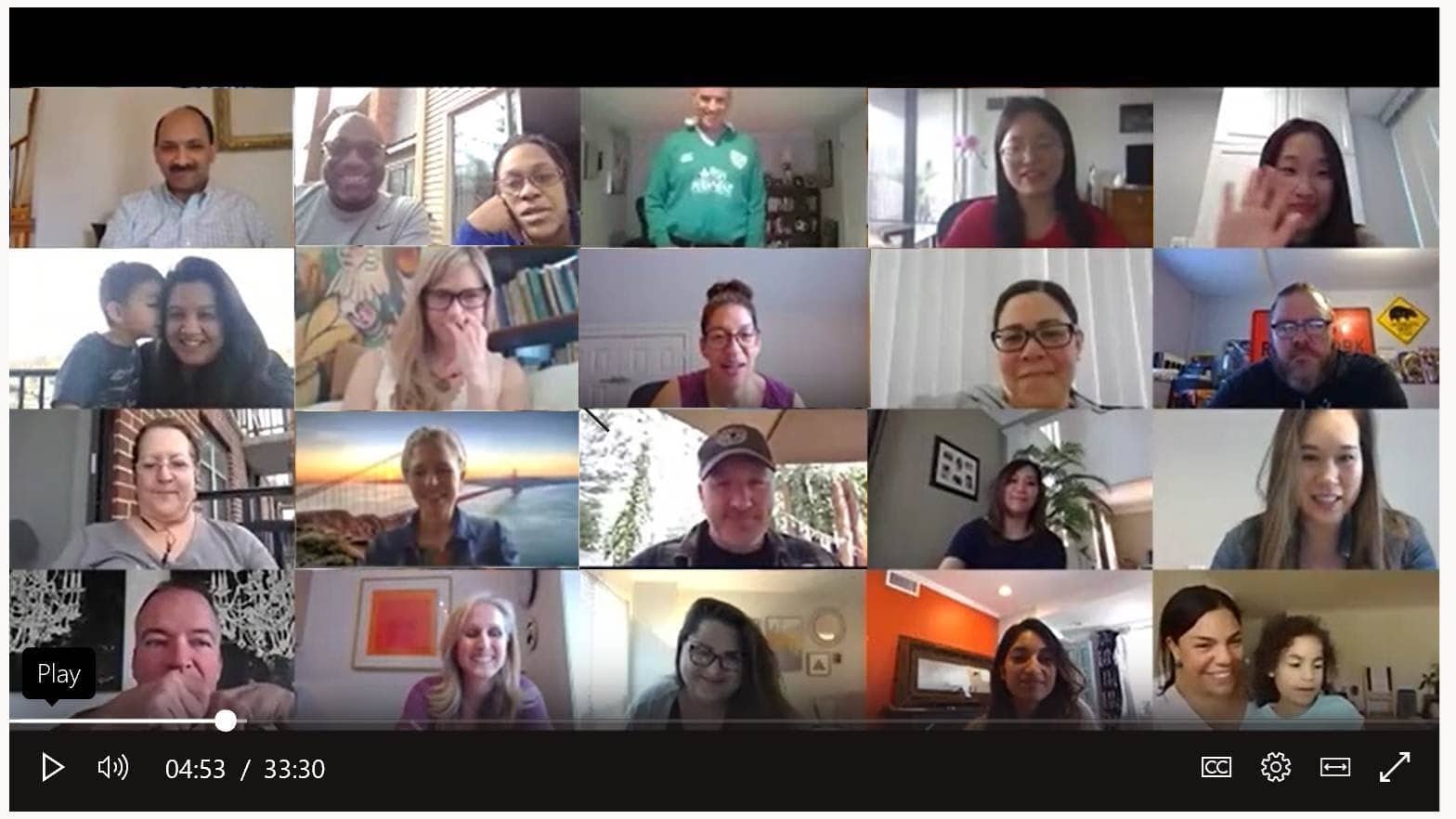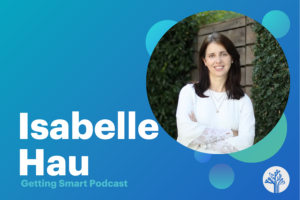5 Ways to Enhance Teacher Super-Powers During COVID-19

By: Vriti Saraf and Angela Tung
The influence teachers have on our children has and always will shape the world. Therefore, logically, the more we invest in teachers, the more our students will thrive, and the more our communities will improve and innovate.
During COVID-19 related school closures, the creative ways in which teachers around the world are bringing excellent online experiences to students is clear evidence of the magnitude of teacher power. They haven’t allowed learning to stop.
So, as teachers focus on students, let’s not forget to focus on teachers.

When our global network at Whittle School & Studios began transitioning our nearly 300 educators and 1,200 students across eight countries into Online Learning over seven weeks ago, we launched five ideas for Professional Learning that have resulted in true teacher power.
1. Start with Strategic Studies
When we first transitioned, we wanted a low-risk, effective way to engage our communities around academic topics. We wanted new learning to impact teacher practice, to strike a balance of asynchronous and synchronous engagement, and for colleagues to collaborate.
We launched a variety of Learning Communities. One particularly successful type is a Book Study. Different from Book Clubs, Book Studies result in specific learning goals which impact instruction. They require self-paced reading time and structured routine meetings, striking a beautiful virtual learning balance. They allow colleagues from around the world to engage intellectually, deepening relationships during this time of “social isolation.”
But we found that substantive Book Studies resulting in practical skill building require strategic facilitation. So, we created this Book Study template, a necessary tool for us to ensure conversations are meaningful, participation is robust, and outcomes are efficacious. We’re currently studying Power of Our Words: Teacher Language that Helps Children Learn.
2. Curate to Conquer
Online instruction was new to us. To support each other, teachers began sharing resources. But imagine receiving 20 emails from 20 different colleagues with 20 different resources in each email… every day!
Recognizing this over-abundance, we began to curate.
We suggest this: Select one person within each department or grade to curate three relevant resources, weekly. Also ask one person to send three general online learning tips to the whole staff, weekly. This curation saves teachers from rummaging through links, while maintaining quality instruction. As a happy outcome, teachers use similar online techniques, creating a cohesive user experience for students.
We also learned that just one introductory online training offering a common set of guidelines is more helpful than overloading on trainings. Our tech savvy teachers eventually moved onto more advanced features and shared with others. We recommend GOA’s Free Online Learning Training as a helpful starting point.
3. Pursue Problems of Practice
Although we are focusing on the present, we mustn’t lose sight of the future. During this online time, we are solving “Problems of Practice”—issues that have either been a nuisance to teachers all year or may become obstacles upon returning to school. We’re using Design Thinking to facilitate structured meetings where small groups of teachers work on specific topics. This type of workshopping gets teachers thinking creatively, gives them a breather from their daily grind, and authentically helps the organization optimize operations.
Problems of Practice can be anything from improving use of math manipulatives, to marrying unstructured with structured pedagogy, to improving the supply ordering system.
Like Book Studies, this isn’t easy to facilitate well. Through iterations, we’ve created a precise method. Check out this detailed Workshopping template to pursue Problems of Practice.
4. Elevate through Documentation
We’ve hired talented individuals. Some of our teachers gregariously share their expertise while others quietly create excellent learning within their classrooms. Sharing ideas online through newsletters has proven easier for our quiet leaders.
We couldn’t recommend them more; our teachers feel recognized, their practices improve, and we now have documentation of amazing work for parents! Here’s an example. Of course, facilitating Book Studies and Workshops also elevate the quiet leader.
5. Stress Wellness
Teacher super-powers rely on strong mental and physical health. We believe the recipe for teacher wellness includes empathy, time, laughter, and bonding.
Empathy: To start, make a list of variables teachers are encountering right now. Specifically, their time zone, the COVID-19 related restrictions in their area, their family situation, and number of students in their class. And then, brainstorm ways to ease their load that are appropriately in our locus of control.
Here’s what we came up with: We are offering counseling services to our teachers to combat stress. We are empowering our grade level teams to configure their schedules and distribute the work-load based on time-zones and situations, instead of us assigning schedules. We’re keeping an eye on supplies. And, as often as necessary, we check in with our teachers both individually and in teams.
Time: Sometimes, it’s better to step back. With all the new changes, giving teachers extra time to figure things out might be the best resource. We don’t worry about accounting for every hour of the workday. We’re asking teachers to ‘rotate vacations’ so each of them has longer periods of personal down-time to re-energize while our online academy remains uninterrupted. We’re also encouraging time-maximizing routines and avoiding schedule changes.
Laughter: This may seem silly but ‘scheduled’ humor has contributed to an overall sense of joy at Whittle. We have virtual Happy Hours where we have sung birthday songs, we’ve danced together, we’ve toasted each other, and we’ve played with virtual backgrounds. Some staff even practice “laughter yoga!”
Bonding: We know humans are social beings. But sometimes, we need encouragement to connect. Our campus teams have developed interest groups about cooking, pets, fitness, music, and more. These common platforms for engagement have allowed our teams to strengthen bonds.
We’ve learned so much already and we look forward to growing our practice.
Here’s the bottom line: We may not know when we will physically return to school. But we do know that supporting teachers’ intellectual, emotional, and physical wellbeing will ultimately allow them to support their students’ and make the most of this difficult time.
Getting Smart has launched the Getting Through series to support educators, leaders, and families on the path forward during such an uncertain time. This series will provide resources and inspiration as we face long term school closures, new learning environments, and address equity and access from a new lens. Whether you are just getting started with distance or online learning, or you’ve had plans in place and have the opportunity to share your work and guidance with others, there is a place for your voice and an opportunity to learn.
We’re going to get through this together, and we invite you to join us. Please email [email protected] with any questions or content you’d like considered for publication. We also invite you to join the conversation on social media using #GettingThrough.
For more, see:
- Getting Through: Leading Through And To A New Generation of Learning Systems
- Teachers Teach: Content, Online Tools, Assessment
- Coronavirus Offers Teachable Moments and Wakeup Call for All Schools
Stay in-the-know with innovations in learning by signing up for the weekly Smart Update.
 Vriti Saraf is the Global Director of Professional Learning at Whittle School & Studios where she creates programs and infrastructure to support the growth of all educators at Whittle.
Vriti Saraf is the Global Director of Professional Learning at Whittle School & Studios where she creates programs and infrastructure to support the growth of all educators at Whittle.
 Angela Tung is the Early Learning Division Head at Whittle School & Studios, Shenzhen Campus, where she integrates Reggio Emilia, Language Immersion, and Project Based Learning, for pre-K and K.
Angela Tung is the Early Learning Division Head at Whittle School & Studios, Shenzhen Campus, where she integrates Reggio Emilia, Language Immersion, and Project Based Learning, for pre-K and K.







0 Comments
Leave a Comment
Your email address will not be published. All fields are required.